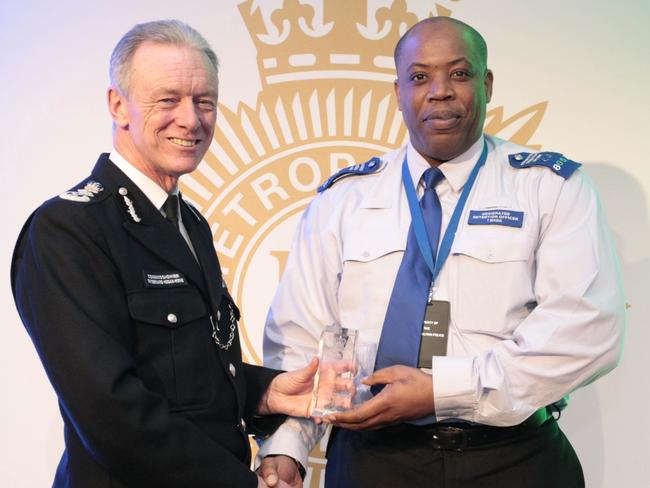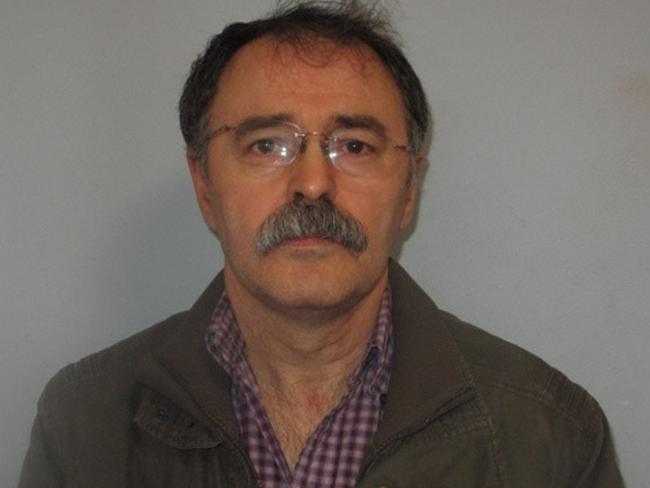Psychologist behind London Police’s Super Recogniser Unit says other countries ‘missing out’ on catching criminals
HE’S the modern-day Sherlock so effective even criminals respect him. And he isn’t even a fulltime cop. Check out his amazing superpower.
HE’S a modern-day Sherlock Holmes who is so good, even criminals respect him.
Metropolitan Detention Officer Idris Bada has a special skill most of us can only dream of — the ability to never forget a face no matter how long it’s been or how fleetingly he glimpsed it.
The Londoner is single-handedly responsible for nearly 370 arrests in the last year of everyone from thieves to fraudsters and others down to his “staggering ‘super recogniser” ability.
It scored him the Overall Winner in the Met’s awards earlier this year made even more remarkable by the fact he managed it all between his full time job as a Detention Officer.

The remarkable man is the star of the Met’s specialist Super Recogniser unit, responsible for more than 2500 arrests in the last year.
The combination of identifying those with natural abilities and new technology is rapidly becoming regarded as a new frontier that could revolutionise policing across Europe.
University of Greenwich Psychology lecturer, Dr Josh Davis — who helps identify and train those born with the natural skill — said it evolved out of police frustrations that while London’s eight million citizens are heavily surveyed, it wasn’t necessarily leading to arrests.
“Even though [people] were caught on camera, wanted and they’re supposedly viewed by all Metropolitan police, the people making the recognition was the same names coming up over and over again,” he told news.com.au. “We wondered what else might be going on.”
A simple test quickly showed that some people were much better than others at identifying faces.
The research was followed by the London riots which saw one officer make up to 180 identifications alone and by the end of 2013, tests were used inside the police force to home in on those with the special skill.
“We found a few more but they’ve never identified anyone from CCTV because they specialised in crimes where you didn’t get CCTV. Some of them have since been seconded to work [in the unit]” he said.
Since then, the unit has clocked some big wins such as the identification of 56-year-old Ilhan Karatepe who was wanted for sexual assaults against young women on London buses.
Having tracked travel data to narrow his location and with a grainy image from CCTV, the super recogniser unit was deployed to Camden station to see what they could find.
PC Alison Young instantly spotted the nondescript man in an overcoat before detectives made the arrest that led to his conviction.
Detective Sergeant Eliot Porritt praised his colleague for the “crucial split second recognition in a busy London station at rush hour within a limited window of opportunity.”
“This was a classic example of good police work with a modern twist; making use of the abilities of super recognisers and current technology to identify and apprehend a suspect who had been elusive for some time,” he said.

In June, Detective Sergeant James Rabbett of the same unit scored a coup with the arrest of thief Michael Prabucki for 39 counts of stealing electronics he claimed were done to feed a drug addiction.
“My investigation uncovered a significant amount of visual evidence to support this conviction, not only linking the suspect by his facial appearance but also by the clothing that he wore and the methods that he employed to commit dozens of crimes, thereby, creating dozens of victims,” he said.
Now, the focus is on using technology to narrow the burden of trawling through hundreds of hours of CCTV. Dr Davis also wants to introduce the skill to other police forces around the world.
As for mere mortals who want to brush up their social skills, Dr Davis said unfortunately it’s something you’re born with or you’re not.
“There does seem to be a correlation [between family members],” he said. “People have tried training facial recognition and it doesn’t really improve. What can improve is if you’re exposure to faces of difference ethnicities … we’re all better at recognising our own ethnicities.”
“If you’re a politician and you are trying to get people to vote for you it’s a real skill.”



